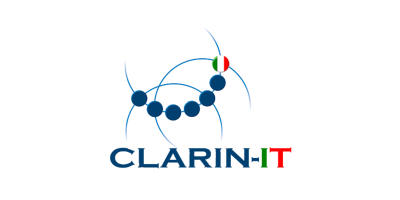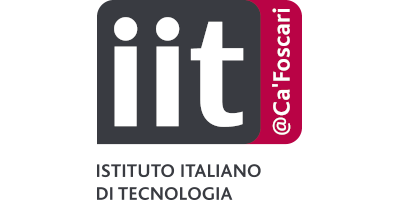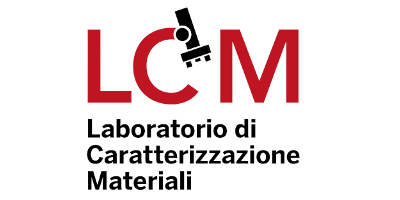Research
Areas, activities and projects
The VeDPH aims at improving the study of literary, artistic and historical sources of our cultural heritage through digital methods, connecting academia and the general public. The centre boosts research by:
- supporting research and training activities at the Department of Humanities
- attracting visiting scholars and professors
- promoting doctoral and postdoctoral research
- collaborating with individual member and partner projects
The research profiles of the centre’s core team represent the broad range of interests and expertise in the various areas and methodological approaches.

Research areas
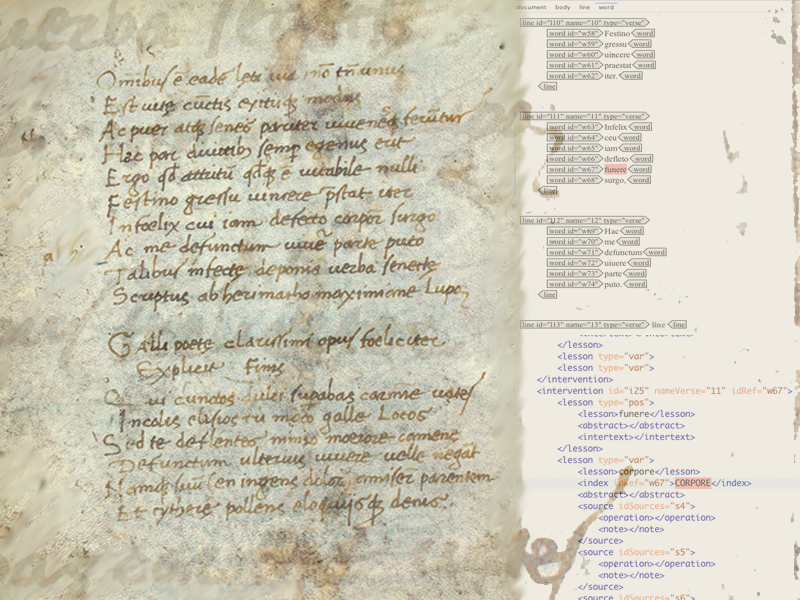
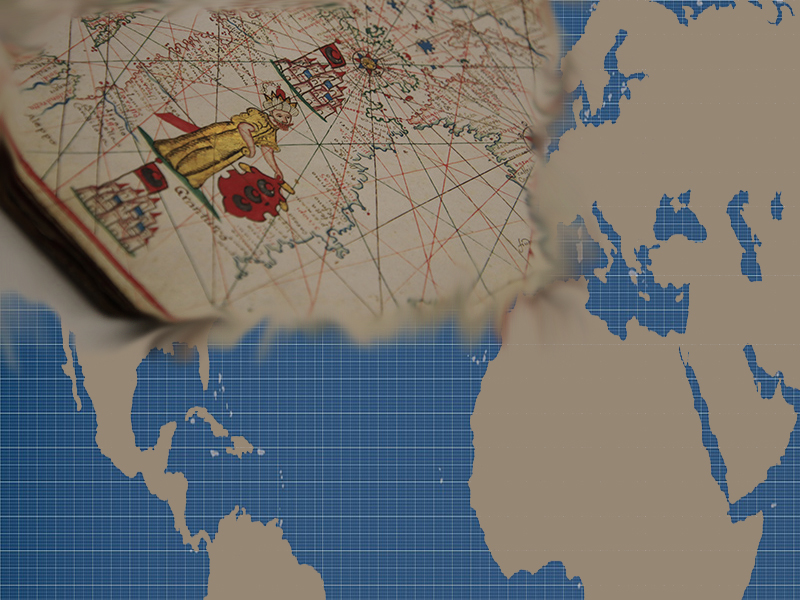
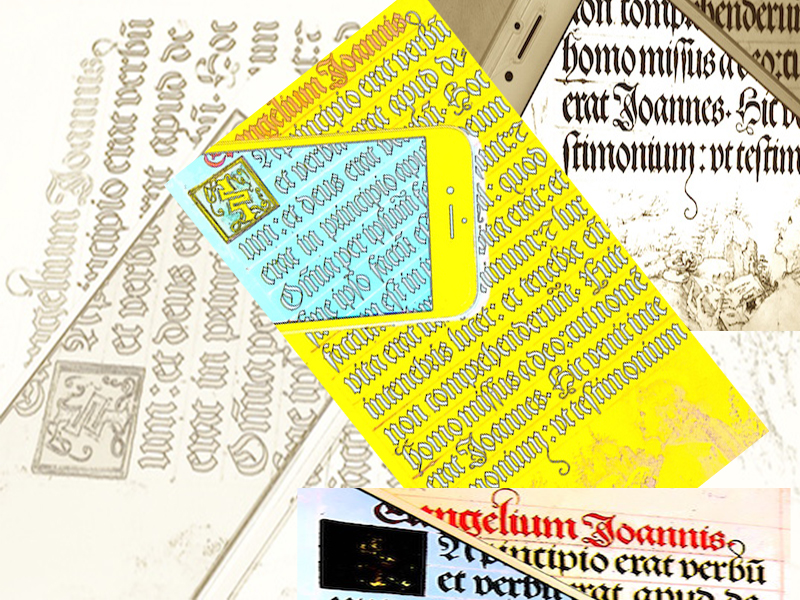
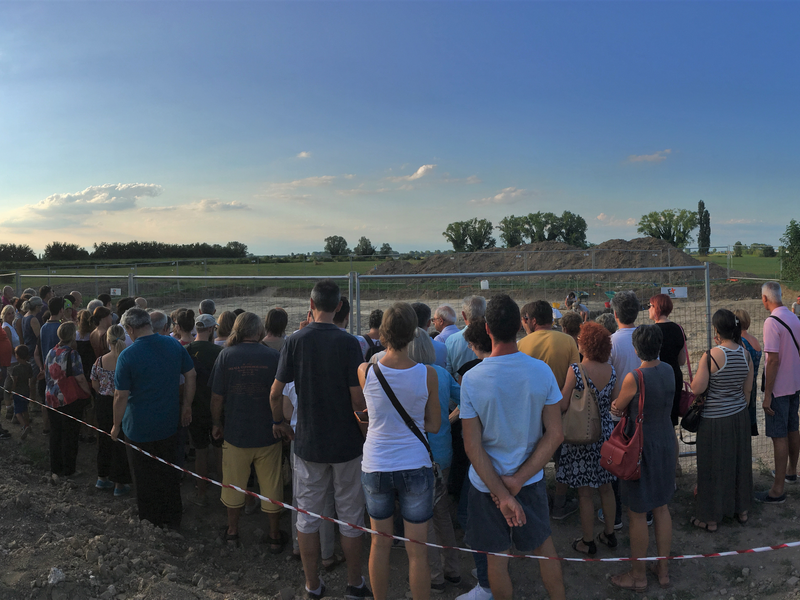
PhD projects
Every year, starting from 2018, VeDPH funded bursary for 3 PhD candidates inside the PhD programmes offered by Department of Humanities.
Admission to Doctoral Programmes is gained through a highly selective application process, subject to international attention. Yearly the call for applications is published during the spring. In particular, the VeDPH bursaries are provided by a special commission after the main selective process.
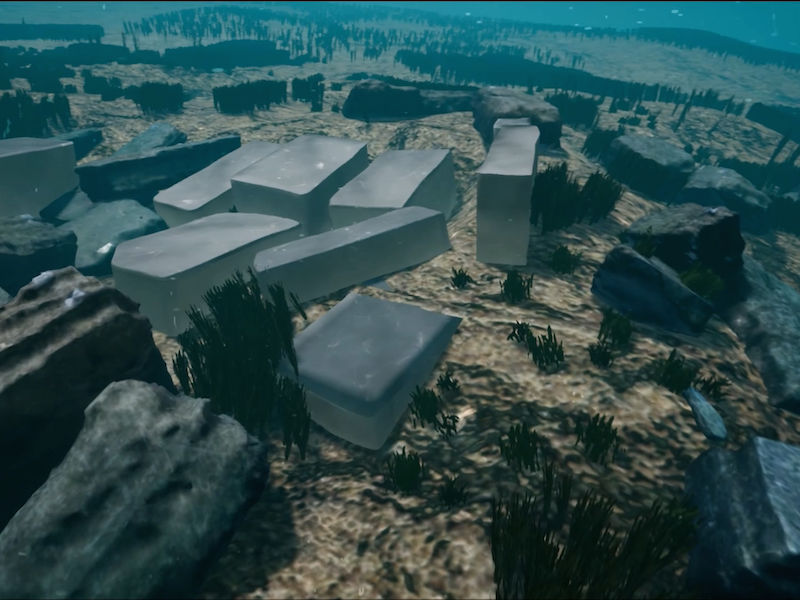
PhD programmes
Ancient heritage studies (Ca' Foscari University of Venice, University of Trieste, University of Udine)
Sofia Antonello’s research “A database of MM IIB pottery deposits from the First Palace of Phaistos (Crete)” concerns the history of the First Palace of Phaistos during its final phase of life, namely the Middle Minoan IIB (1850-1800 BC). This span of time is identified firstly by an architectonic monumentalization and secondly by a crisis before the collapse of the Palace. The project constitutes an improvement of the studies in Phaistian pottery and it has the ultimate aim of creating a relational database of some unpublished Middle Minoan IIB Phaistian pottery deposits in order to realise a final publication of it.
Eleonora Delpozzo’s research “Urban design and architecture in Roman Altinum: a digital perspective” is focused on the archeology of the Northern part of Roman Italy, specifically the city of Altinum located near Venice, and on the use of modern technologies, such as digital recording, 3D modeling, BIM and GIS, applied to the study and dissemination of these topics.
Federico Tanozzi’s research “Duelli epici. Una proposta di annotazione semantica digitale” focuses on the semantic structure underlying one of the most recognizable and memorable themes of epic literature: the duel. Through the use of markup languages, the project aims to create a digital-assisted commentary of the literary representations of duels, from the Homeric 'Monomachiai' to later examples from the Greek and Latin traditions.
Italian studies
"La versione toscana TB del Devisement Dou Monde. Edizione digitale in forma di ipertesto" is the title of PhD project carried out by Silvia Marsili. She is currently working at a digital scholarly edition of TB, a version of Marco Polo's Devisement dou monde circulating in 14th century Tuscany.
The Miriam Errico’s research project aims to offer a digital scholarly edition of the manuscript Paris BNF It. 440, a Volgarizzamento salentino of Brunetto Latini’s Tresor (15th century). The edition will be followed by a linguistic study of the manuscript, according to the methods of computational linguistics, useful for analysing the forms considered interesting for the tracing and digital systematisation of the linguistic component of Salento.
The Lorenzo Negro's research project aims to offer a complete and precise comment on Vittorio Sereni's third collection: "Gli strumenti umani" (Einaudi, 1965): one of the most interesting contemporary Italian poets and his most mature and beautiful poetic expression. All the poems will be accompanied by a careful philological introduction, which also underlines the editorial and dating issues, with precise references to the close correspondences and the Sereni's prose writings. The second and third part will be respectively dedicated to themes and metrics, concluding with a precise exegesis adhering to the syntactic drafting, verse by verse. In addition to the broad general introduction about the work and its author, the project provides an innovative research formula through the tools of Digital Humanities, in order to strengthen the comment with the creation of a database of concordances, lammes and precise searches on metric formulas in relation to syntax
Historical geographical and anthropological studies (Ca' Foscari University of Venice, University of Padua, University of Verona )
Carlo Arrighi, in the research “Civilization under siege. The narration of barbarian alterity in late antiquity sources and contemporary media”, analyzes the strong comparison between current political, social, cultural situation and the fate of the Western Roman Empire following the barbarian invasions during the Late Antiquity, through a 4-step path. The analysis is focused on: historiography; late antique sources; historical and archaeological exhibitions and filmography; last two years italian newspapers. The aim is to offer a digital exhibition and a didactic workshop designed to stimulate a deeper historical awareness of the connections between present and past and a more critical consciousness towards information.
Rosalba Feo is currently working on “Tradizione papiracea e circolazione della produzione attidografica. Il caso di Filocoro di Atene”: a TEI XML digital critical edition with translation and commentary of the papyrological fragments of the Attidographer Philochorus of Athens, in connection with papyri.info.
Anna Clara Basilicò is currently studying and digitalizing the unpublished corpus of graffiti left by Inquisition’s prisoners in four Italian prisons (Venice, Narni, Rome and Palermo). Aim of the project is to analyze the use of writing in such a specific context from a social history perspective and to disseminate the results according to the objectives of public history. More in detail, one of the means for dissemination will be an AR environment to be designed for each prison.
Collaboration and partners
The VeDPH collaborates with several local, national and international partners and networks that are engaged in digital and public humanities research.
Research Institute for Digital and Cultural Heritage enforce the Ca’ Foscari engagement by promoting cross-disciplinary approaches to human culture, languages and technology, - such as data processing, ICTs, conservation science, chemistry and biology.
ILC-CNR. The Venetian Unit of Research with Third parties (VeURT) of the Institute for Computational Linguistics “A. Zampolli” of the Italian National Research Council (ILC-CNR) collaborates with the VeDPH in the context of the framework Project “Archipelago DH”, which is focused on the following topics:
- creation of new multilingual resources for Digital Humanities acquired through advanced Optical Character Recognition (OCR) systems and through manual annotation of historical and literary documents;
- development of methods to improve the accuracy of OCR on historical multilingual documents, development of applications for linguistic, stylistic, philological annotation of historical and literary documents, and development of search engines applied to annotated textual corpora
CLARIN-IT is the Italian node of CLARIN (Common Language Resources and Technology Infrastructure), whose grand vision it shares. The Italian CLARIN consortium - represented by ILC-CNR and coordinated by Monica Monachini, Senior Researcher at ILC-CNR - is still being formed and will include several of the major universities and research institutes of the country, such as departments and institutions of language and literary studies, Philology and Computer Science, as well as groups mostly involved in the field of Digital Humanities and in the sectors of documentation, digitalization and language technologies for the Humanities.
IIT-CCDH. The scientific activity of CCHT@Ca’Foscari follows the real needs of those who are actively involved in everyday preservation and restoration of cultural heritage. Competences gained from the IIT research teams working in the fields of materials science, computer vision, AI and machine learning, are employed at many levels and with a multidisciplinary approach.
The Material Characterization Laboratory of Ca’ Foscari University carries out scientific research activities and diagnostic investigation on historical, artistic and archaeological artefacts, even in the field, through non invasive and non destructive techniques (Optical Microscopy, FORS, µ-Raman, NIR, DRIFT), in collaboration also with other public and private research laboratories. In addition FTIR-ATR micro-destructive analysis is also available. LCM also realizes, throughout advanced imaging techniques, panoramic images and tridimensional interactive virtual tours of historical and artistic building interiors and exteriors (real and reconstructed), as well as tridimensional images (also macro-) of artifacts, for research, documentation and valorization purposes.
Humanities for Change is an international network of students and young scholars who are committed to establishing a different role for the humanistic disciplines in the present time. Its activity of divulgation is concentrated on certain fundamental themes, such as: the digital and public humanities, innovative professional opportunities for graduates of this field, the reflection on innovations in the didactic environment and the potential derived from the collaboration with hard sciences.
NaWA - Urban Ontologies. Historical Ontology of Urban Spaces (HOUSe) is a project funded by polish National Agency for Academic Exchange (NAWA) aims to develop and strengthen international cooperation network regarding ontology of concepts and phenomena related to the history and space of the city. The research group is composed by researchers from Poland, Austria, France, Germany, Italy and Great Britain.
The Venice Time Machine is part of The Time Machine, an EU Large-Scale Research collaborative project that builds a Large Scale Historical Simulator mapping thousands of years of European history. The Time Machine brings together the expertise of over 600 institutions ranging from major European museums, libraries and archives to leading companies in digitisation and artificial intelligence to academic institutions, Time Machine aims to process millions of historical documents, paintings, landscapes and monuments through its Local Time Machines and become the largest historical computer simulation ever developed.The Venice Time Machine is one of the Local Time Machines, a collaborative project begun in 2014 between the University of Ca' Foscari, Ecole Polytechnique de Lausanne (EPFL) and the Venice State Archives. Today, in collaboration with the VeDPH, it focuses as a start on five research projects using new technologies in order investigate the history of Venice at large scale: from tourists' graffitti throughout the ages to a digital tour of the Roman stones in the city's streets to mapping the lagune and its archeological sites or to transcribe semi-automatically 300,000 Venetian wills in order to retrace Venetian property.



